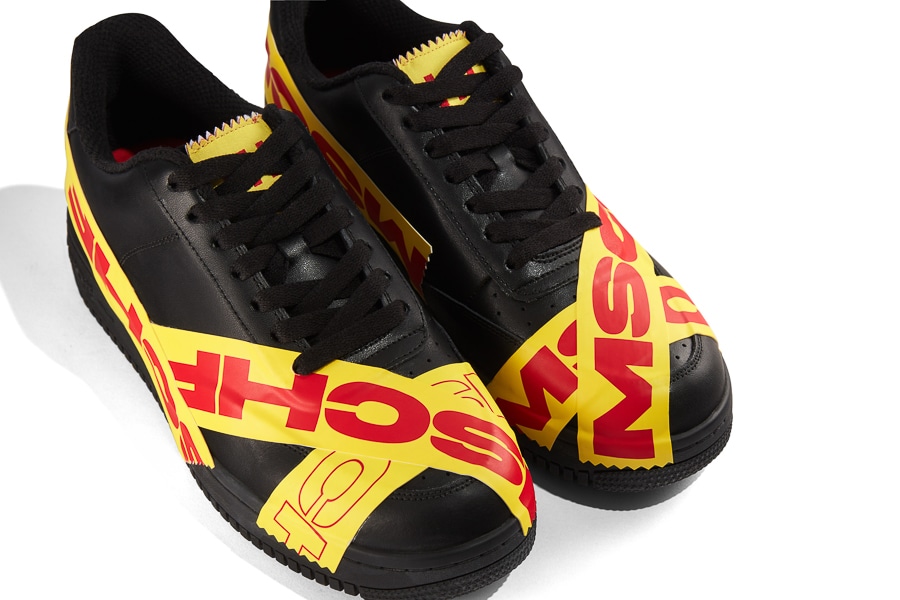
After Satan Shoes, building a whole sneaker empire
Last year, a MSCHF collaboration with Lil Nas X featuring Nike Air Max 97s modified with a bit of blood and devilish symbolism, sparked a firestorm of controversy as well as a Nike lawsuit. Now, its inventors are back, and not with just another wacko, attention-getting stunt
 In an undated image provided by MSCHF shows, the new TAP3 sneaker by the creative collective MSCHF, the first release in a new sneaker line. The collection will be sold via app and its own website, and will take the form of mostly monthly drops of different styles, priced around $220 a pair. (MSCHF via The New York Times)
In an undated image provided by MSCHF shows, the new TAP3 sneaker by the creative collective MSCHF, the first release in a new sneaker line. The collection will be sold via app and its own website, and will take the form of mostly monthly drops of different styles, priced around $220 a pair. (MSCHF via The New York Times)
Last year, when MSCHF, the creative collective in the New York City borough of Brooklyn that styles itself as the Banksy of consumer culture, unveiled its “Satan Shoes,” a collaboration with Lil Nas X featuring Nike Air Max 97s modified with a bit of blood and devilish symbolism, it sparked a firestorm of controversy as well as a Nike lawsuit.
In the end, sales were halted and the product, if not its shadow, disappeared from the internet. Now, however, its inventors are back, and not with just another wacko, attention-getting stunt.
With an entire sneaker line. Think Nike meets Supreme meets Warhol, and you’ll get the idea.
Called MSCHF Sneakers, the collection will be sold via app and its own website, and will take the form of mostly monthly drops of different styles, priced around $220 a pair. Unlike previous MSCHF footwear — the Satan shoe; its predecessor, the Jesus shoe (a Nike that contained holy water); or the Birkinstock (a Birkenstock made from an Hermès Birkin bag) — none of the styles will be modifications of existing shoes; they will be entirely original. Which does not mean they will be without reference or a little subversion of contemporary golden calves.
The first style, the TAP3, scheduled to go on sale Monday, is a direct nod to recent history: a leather shape and sole very reminiscent of the Nike Air Force 1, wrapped in slashes of “overmolded thermoplastic polyurethane MSCHF packing tape” that have been permanently melded to the body of the shoe (weirdly reminiscent of the recent Balenciaga show, in which Kim Kardashian arrived wrapped in Balenciaga-branded packing tape). The shoes come in a seemingly familiar looking orange cardboard box with signature bits seemingly covered in packing tape. A matching roll of packing tape comes with them.
©2019 New York Times News Service







